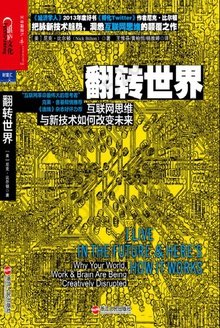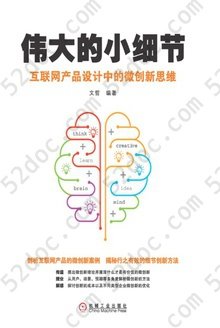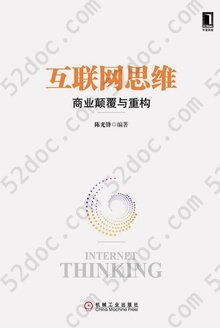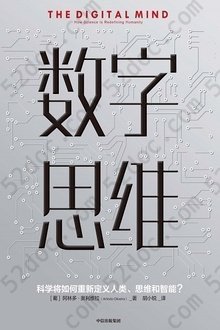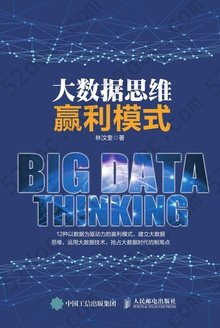注重体验与质量的电子书资源下载网站
分类于: 编程语言 互联网
简介
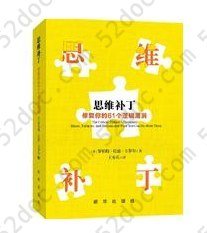
思维补丁: 恢复你的61个逻辑漏洞 豆 8.1分
资源最后更新于 2020-08-19 15:53:42
作者:(美国)罗伯特·托德·卡罗尔
译者:王亦兵
出版社:新华出版社
出版日期:2017-01
ISBN:9787516637517
文件格式: pdf
标签: 逻辑 思维 批判性思维 思维漏洞 谬误 哲学 2017 0.心理
简介· · · · · ·
作者通过心理学实验总结、剖析人们潜意识中存在的不为自己意识到的61个偏见、谬误和错觉,比如稻草人谬误、归因偏误、逆火效应、群体思维、巨数法则、奥卡姆剃刀理论、事后归因偏误等等。、谬误和错觉。针对每一个问题,作者都用生动的案例来介绍它在我们生活中的表现,用相关心理学实验来验证,并对怎样才能通过思考或实验来解释它们产生的原因,以及我们如何才能克服这些偏见、谬误和错觉提出有效建议。本书兼具知识性、思想性、实用性、趣味性,可以很好地帮助读者提高独立思考、理性思维的能力。(From 当当)
目录
前言
作者自序
引言
1.特例假设(ad hoc hypothesis)
2.人身攻击谬误(ad hominem fallacy)
3.诉诸大众谬误(ad populum fallacy)
4.影响偏误(affect bias)
5.锚定效应(anchoring effect)
6.轶事证据/亲历证词(anecdotal evidence/testimonials)
7.意义妄想及虚幻妄想(apophenia and pareidolia)
8.诉诸权威(appeal to authority)
9.诉诸传统(appeal to tradition)
10.诉诸无知(argumentum ad ignorantiam)
11.归因偏误(attribution biases)
12.易得性偏误(availability bias)
13.逆火效应(backfire effect)
14.想当然(begging the question)
15.偏误盲点(bias blind spot)
16.因果谬误(causal fallacies)
17.变化盲视(change blindness)
18.经典条件反射及安慰剂效应(classical conditioning and placebo effects)
19.集群错觉(clustering illusion)
20.大众强化(communal reinforcement)
21.虚构症(confabulation)
22.确认偏误(confirmation bias)
23.持续影响效应(continued influence effect)
24.对照组研究(control group study)
25.明辨思维/明辨思维者(critical thinking/critical thinker)
26.去偏误化(debiasing)
27.实验者效应(experimenter effect)
28.谬误(fallacies)
29.错误暗示(false implication)
30.错误记忆(false memories)
31.福瑞尔效应/巴纳姆效应(Forer effect/Barnum effect)
32.群体思维(groupthink)
33.光环效应(halo effect)
34.后视偏误(hindsight bias)
35.观念运动效应(ideomotor effect)
36.控制错觉(illusion of control)
37.正义错觉(illusion of justice)
38.技能错觉(illusion of skill)
39.理解的错觉(illusion of understanding)
40.疏忽性盲视(inattentional blindness)
41.意向偏误(intentionality bias)
42.巨数法则(law of truly large numbers)
43.奇幻思维(magical thinking)
44.动机性推理(motivated reasoning)
45.负面偏误(negativity bias)
46.奥卡姆剃刀理论(Occam's razor)
47.乐观偏误(optimistic bias)
48.正面成果偏误(positive—outcome bias)
49.事后归因谬误(post hoc fallacy)
50.激发效应(priming effect)
51.近因偏误(recency bias)
52.回归性谬误(regressive fallacy)
53.代表性偏误(representativeness bias)
54.选择偏误(selection bias)
55.自我欺骗(self—deception)
56.牵强附会(shoehorning)
57.稻草人谬误(straw man fallacy)
58.主观验证(subjective validation)
59.隐藏证据(suppressed evidence)
60.德州神枪手谬误(Texas—sharpshooter fallacy)
61.一厢情愿(wishful thinking)
附录一 “别想太多”所蕴含的智慧
附录二 评估个人经验
附录三 未列入本书目录的一些偏误、谬误和错觉
作者自序
引言
1.特例假设(ad hoc hypothesis)
2.人身攻击谬误(ad hominem fallacy)
3.诉诸大众谬误(ad populum fallacy)
4.影响偏误(affect bias)
5.锚定效应(anchoring effect)
6.轶事证据/亲历证词(anecdotal evidence/testimonials)
7.意义妄想及虚幻妄想(apophenia and pareidolia)
8.诉诸权威(appeal to authority)
9.诉诸传统(appeal to tradition)
10.诉诸无知(argumentum ad ignorantiam)
11.归因偏误(attribution biases)
12.易得性偏误(availability bias)
13.逆火效应(backfire effect)
14.想当然(begging the question)
15.偏误盲点(bias blind spot)
16.因果谬误(causal fallacies)
17.变化盲视(change blindness)
18.经典条件反射及安慰剂效应(classical conditioning and placebo effects)
19.集群错觉(clustering illusion)
20.大众强化(communal reinforcement)
21.虚构症(confabulation)
22.确认偏误(confirmation bias)
23.持续影响效应(continued influence effect)
24.对照组研究(control group study)
25.明辨思维/明辨思维者(critical thinking/critical thinker)
26.去偏误化(debiasing)
27.实验者效应(experimenter effect)
28.谬误(fallacies)
29.错误暗示(false implication)
30.错误记忆(false memories)
31.福瑞尔效应/巴纳姆效应(Forer effect/Barnum effect)
32.群体思维(groupthink)
33.光环效应(halo effect)
34.后视偏误(hindsight bias)
35.观念运动效应(ideomotor effect)
36.控制错觉(illusion of control)
37.正义错觉(illusion of justice)
38.技能错觉(illusion of skill)
39.理解的错觉(illusion of understanding)
40.疏忽性盲视(inattentional blindness)
41.意向偏误(intentionality bias)
42.巨数法则(law of truly large numbers)
43.奇幻思维(magical thinking)
44.动机性推理(motivated reasoning)
45.负面偏误(negativity bias)
46.奥卡姆剃刀理论(Occam's razor)
47.乐观偏误(optimistic bias)
48.正面成果偏误(positive—outcome bias)
49.事后归因谬误(post hoc fallacy)
50.激发效应(priming effect)
51.近因偏误(recency bias)
52.回归性谬误(regressive fallacy)
53.代表性偏误(representativeness bias)
54.选择偏误(selection bias)
55.自我欺骗(self—deception)
56.牵强附会(shoehorning)
57.稻草人谬误(straw man fallacy)
58.主观验证(subjective validation)
59.隐藏证据(suppressed evidence)
60.德州神枪手谬误(Texas—sharpshooter fallacy)
61.一厢情愿(wishful thinking)
附录一 “别想太多”所蕴含的智慧
附录二 评估个人经验
附录三 未列入本书目录的一些偏误、谬误和错觉



